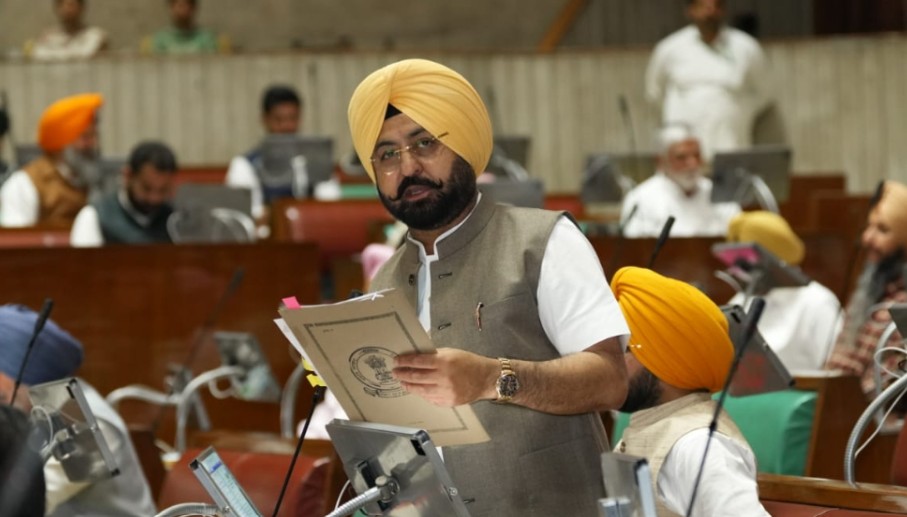The Punjab government has announced an ambitious plan to develop urban estates in cities across the state, aiming to address the growing need for planned urbanization, housing, and infrastructure. This initiative is set to transform the urban landscape of Punjab, ensuring that cities expand in a systematic and well-regulated manner while catering to the increasing population and economic demands. With rapid urban growth, there has been a pressing need for well-planned housing projects, commercial spaces, and public amenities, and this new initiative promises to meet those requirements effectively.
Punjab, known for its rich agricultural heritage, has been experiencing a steady rise in urbanization over the past few decades. With industries, businesses, and educational institutions flourishing in cities like Ludhiana, Amritsar, Jalandhar, Patiala, and Mohali, the demand for well-planned urban estates has become more crucial than ever. Recognizing this, the state government has taken proactive measures to develop urban spaces that not only provide modern amenities but also ensure sustainable growth. The initiative aims to create well-organized residential, commercial, and recreational zones, ensuring that cities are equipped to handle future expansion efficiently.
The development of urban estates will follow a structured approach, incorporating the latest urban planning techniques. Each estate will include essential infrastructure such as well-laid roads, parks, schools, hospitals, shopping centers, and community spaces. This holistic approach will ensure that residents have access to all necessary facilities within close proximity, reducing congestion in existing urban centers and promoting a higher standard of living. Moreover, these estates will be designed to accommodate eco-friendly solutions, such as rainwater harvesting, solar energy utilization, and green spaces, making them sustainable for the long term.
One of the key aspects of this initiative is the focus on affordability. The Punjab government understands that housing needs to be accessible to people from all economic backgrounds. Therefore, a significant portion of these urban estates will include affordable housing schemes, enabling middle and lower-income families to own homes in well-planned localities. This step is expected to address the housing shortage in urban areas and provide better living conditions for thousands of families. Additionally, provisions for rental housing and government-supported housing projects will be integrated to accommodate people from diverse socioeconomic backgrounds.
The initiative also aims to boost economic development by integrating commercial hubs within these urban estates. By allocating specific zones for business activities, offices, and industrial units, the government intends to attract investment and generate employment opportunities. This will not only enhance the economic prospects of the cities but also reduce the need for people to migrate to other states in search of jobs. The presence of commercial spaces within the estates will create a self-sustaining economic ecosystem, benefiting local businesses and entrepreneurs.
To ensure the success of this project, the government plans to collaborate with private developers, urban planners, and real estate experts. Public-private partnerships (PPPs) will play a crucial role in the timely execution of these estates. By involving reputed builders and infrastructure companies, the government aims to bring expertise and efficiency into the development process. At the same time, stringent regulations will be enforced to prevent haphazard growth and maintain high construction standards.

A significant advantage of these urban estates will be the improved connectivity they offer. Well-planned roads, flyovers, and transportation networks will ensure seamless movement within the estates and link them to major city centers. The government also plans to enhance public transportation facilities, such as metro extensions, bus services, and cycle tracks, to promote sustainable mobility options. By reducing traffic congestion and improving accessibility, these measures will contribute to making Punjab’s cities more livable and efficient.
Another critical aspect of the urban estate project is environmental sustainability. The Punjab government has pledged to incorporate green initiatives in these developments to ensure minimal environmental impact. Parks, tree-lined streets, and designated green belts will be integral parts of these estates, providing residents with natural spaces for recreation and relaxation. Additionally, eco-friendly building materials, energy-efficient designs, and waste management systems will be prioritized to make these urban estates environmentally responsible.
The implementation of this project will be carried out in phases. Initially, major cities such as Ludhiana, Amritsar, and Mohali will be the focus areas, followed by medium-sized towns where urban expansion is needed. Detailed planning and feasibility studies will be conducted to ensure that each urban estate is designed to cater to the specific needs of the respective city. Public consultations will also be held to incorporate the views of local residents, ensuring that the development aligns with their expectations and requirements.
The Punjab government’s urban estate initiative also has significant implications for infrastructure development. By creating well-planned urban zones, the pressure on existing municipal infrastructure will be reduced, allowing for better distribution of resources and services. Water supply, sewage systems, electricity distribution, and waste disposal facilities will be modernized to meet the growing demands of urbanization. With state-of-the-art infrastructure, these urban estates will serve as models for future urban development projects across the country.
Education and healthcare facilities will also receive a boost as part of the urban estate plan. Schools, colleges, and universities will be strategically placed within these estates, ensuring that quality education is accessible to residents. Similarly, hospitals and healthcare centers will be established to provide essential medical services, reducing the need for long-distance travel to major hospitals. This comprehensive approach will enhance the overall quality of life for residents, making Punjab’s cities more attractive and livable.
Security and safety measures will also be a priority in the development of these urban estates. The government plans to incorporate modern surveillance systems, street lighting, and well-equipped police stations within these areas to ensure a safe living environment. Additionally, disaster management plans will be integrated to address potential risks such as floods or earthquakes, making these urban spaces resilient to natural calamities.
While the Punjab government is optimistic about the project, challenges remain. Acquiring land, ensuring proper execution, and maintaining affordability are some of the hurdles that need to be addressed. However, with careful planning, transparent policies, and effective governance, these obstacles can be overcome. The government is committed to ensuring that this initiative benefits all sections of society and contributes to the long-term growth of Punjab.
In conclusion, the development of urban estates in Punjab marks a significant step toward modernizing the state’s cities while maintaining sustainable growth. By creating well-planned residential and commercial spaces with robust infrastructure, improved connectivity, and environmental sustainability, the initiative promises to transform Punjab’s urban landscape. The inclusion of affordable housing, business hubs, and essential services will enhance the quality of life for residents, making the cities more efficient and livable. As this ambitious project unfolds, it is expected to set a benchmark for urban development, positioning Punjab as a model state for planned urbanization in India.


